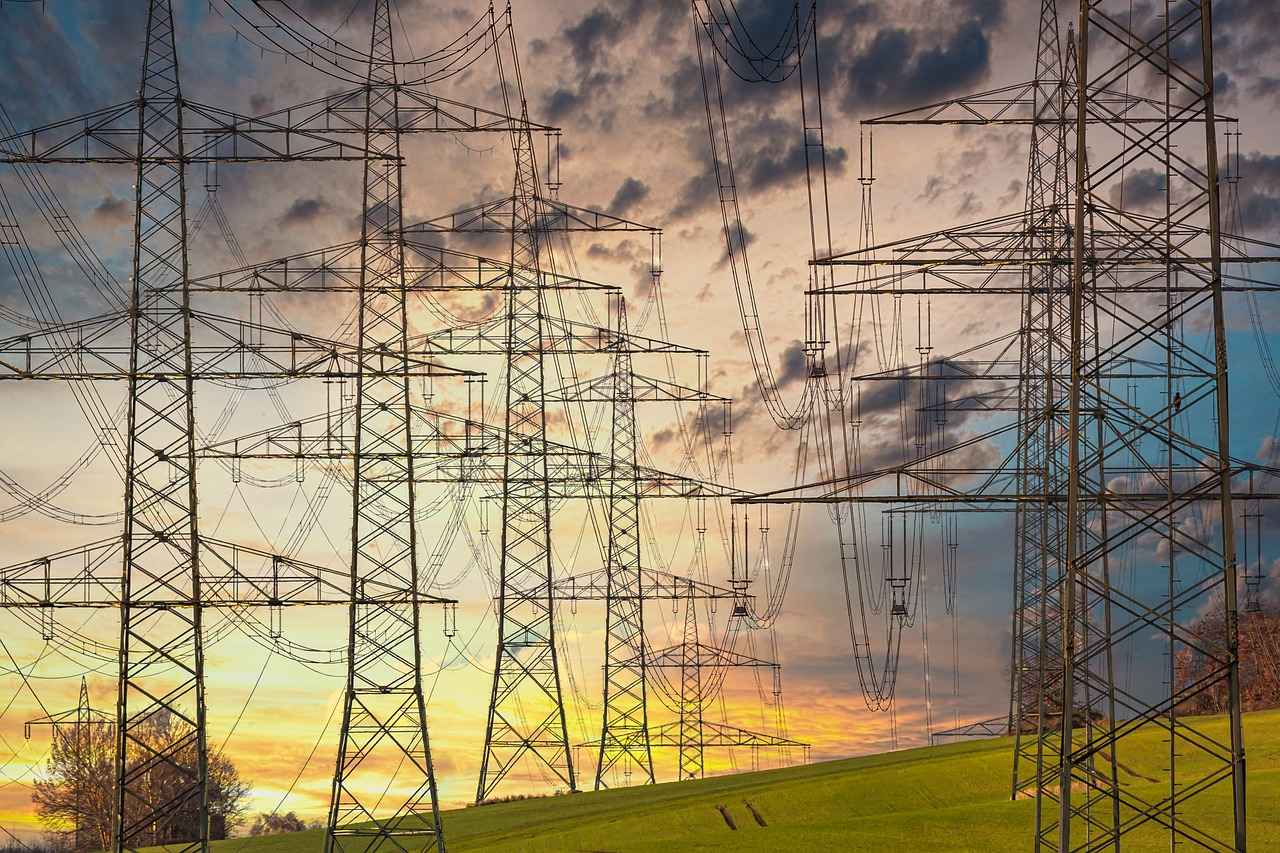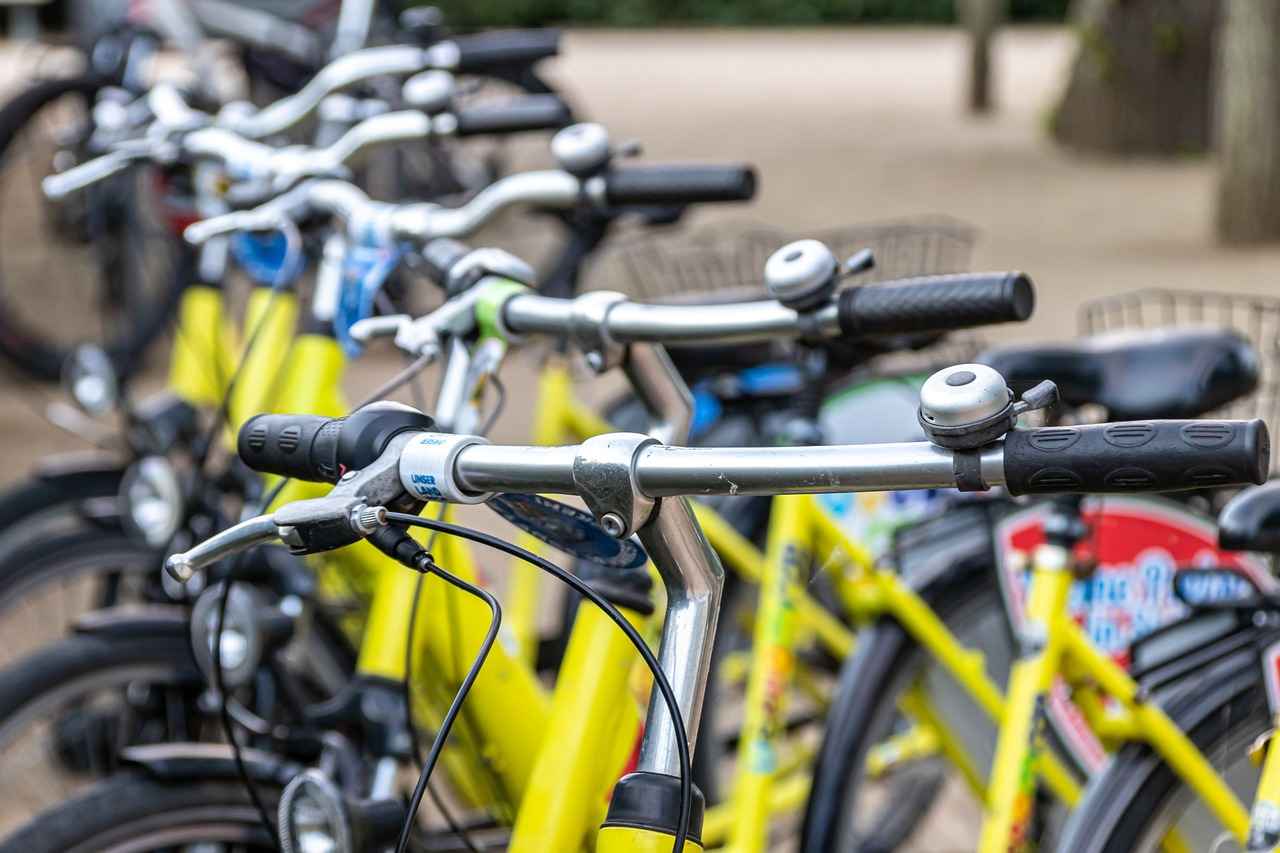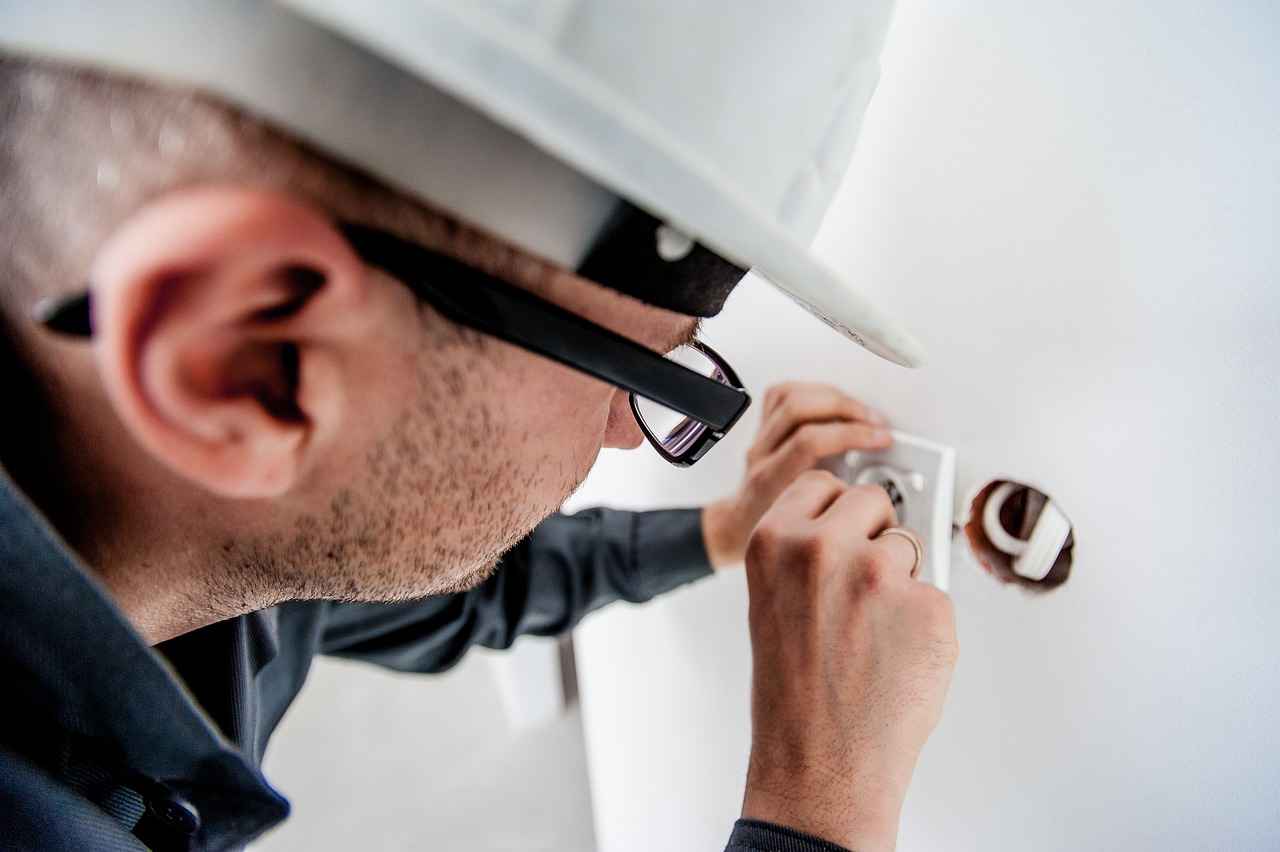This article explores the key features to consider when purchasing your first electric bike, assisting you in making an informed decision for a satisfying riding experience.
Understanding Electric Bike Types
Electric bikes are available in various styles, including city bikes, mountain bikes, and folding bikes. Each type serves different purposes, so understanding these variations is crucial to selecting the right model for your needs.
Motor Power and Performance
The motor power of an electric bike plays a significant role in its performance. Familiarize yourself with the different types of motors, as they affect speed, hill-climbing ability, and overall riding experience.
- Hub Motors: Located in the wheels, these motors are straightforward and low maintenance, making them ideal for casual riders.
- Mid-Drive Motors: Positioned near the pedals, these motors offer better weight distribution and are excellent for tackling steep inclines.
Battery Capacity and Range
Battery capacity is a vital factor as it determines how far you can travel on a single charge. Understanding amp-hours (Ah) and watt-hours (Wh) will help you choose a bike that meets your travel requirements.
Frame Material and Weight
The material of the frame influences the bike’s weight, durability, and ride quality. Common materials include aluminum and steel, each offering unique benefits.
- Aluminum Frames: Lightweight and corrosion-resistant.
- Steel Frames: More durable and provide a smoother ride.
Braking Systems for Safety
Safety is paramount, and understanding the differences between disc brakes and rim brakes can enhance your riding experience.
- Disc Brakes: Offer superior stopping power, especially in wet conditions.
- Rim Brakes: Lighter and easier to maintain, but may not perform as well in adverse weather.
Comfort Features for a Better Ride
To ensure a pleasant riding experience, consider comfort features such as suspension, seat design, and handlebar height.
- Suspension Types: Front, rear, and full suspension systems provide varying levels of comfort.
- Adjustable Seats and Handlebars: Allow for a personalized fit, enhancing comfort during longer rides.
Additional Features to Consider
Look for features like integrated lights, fenders, and racks which add convenience and safety, making your bike more suitable for daily use.
- Integrated Lighting Systems: Improve visibility during night rides.
- Fenders and Racks: Protect against mud and allow for easy carrying of belongings.
Conclusion: Making an Informed Choice
Choosing the right electric bike involves understanding your preferences and needs. By considering the features outlined in this article, you can find a bike that enhances your riding experience and fits your lifestyle.

Understanding Electric Bike Types
Electric bikes, or e-bikes, have gained immense popularity due to their versatility and convenience. With various types available, it’s essential to understand the differences to make an informed choice. Here, we explore the primary categories of electric bikes: city bikes, mountain bikes, and folding bikes.
- City Electric Bikes: Designed for urban commuting, city electric bikes are typically lightweight and feature a comfortable riding position. They often come equipped with practical accessories like racks, fenders, and lights, making them ideal for daily use. Their moderate motor power allows for efficient travel on city streets, tackling hills with ease.
- Mountain Electric Bikes: For the adventurous, mountain electric bikes are built to handle rough terrains and steep inclines. These bikes usually feature robust frames, wider tires, and advanced suspension systems that provide stability and comfort on bumpy trails. The powerful motors offer excellent torque, making uphill climbs manageable.
- Folding Electric Bikes: Perfect for those with limited storage space or who frequently use public transport, folding electric bikes are compact and lightweight. They can be easily folded for transport and storage. Despite their small size, they often come with powerful motors and decent battery life, making them a practical choice for urban dwellers.
When selecting an electric bike, consider your primary use case. Whether you need a reliable commuter bike, a rugged mountain bike for trails, or a compact folding option, understanding these types will help you make the right choice for your lifestyle.
In conclusion, the variety of electric bikes available caters to diverse needs and preferences. By identifying the type that aligns with your riding habits, you can enhance your cycling experience and enjoy the benefits of electric biking.

Motor Power and Performance
The motor power of an electric bike plays a crucial role in determining its overall performance. When considering an electric bike, understanding how different motor types influence factors such as speed, hill-climbing ability, and the overall riding experience is essential for making an informed decision.
Electric bike motors generally fall into two categories: hub motors and mid-drive motors. Each type has its unique characteristics that can significantly affect your riding experience.
- Hub Motors: Located in the wheel hubs, these motors offer simplicity and ease of use. They are typically less expensive and require minimal maintenance, making them ideal for casual riders. However, they may struggle on steep inclines due to their limited torque.
- Mid-Drive Motors: Positioned near the bike’s pedals, mid-drive motors provide better weight distribution and higher torque, making them more effective for climbing hills and navigating rough terrains. They offer a more natural riding experience, as they utilize the bike’s gears for improved efficiency.
The motor power, measured in watts, directly influences the bike’s speed and acceleration. A higher wattage typically means faster speeds, but it also depends on the bike’s weight and design. For instance, a 750W motor can propel a bike to speeds of up to 28 mph, making it suitable for commuting and recreational rides.
When it comes to tackling hills, the torque produced by the motor is critical. Mid-drive motors excel in this area, as they can deliver more torque, enabling the rider to ascend steep inclines with ease. This makes them a popular choice for mountain biking and more challenging routes.
The choice of motor not only affects speed and hill-climbing but also impacts the bike’s overall riding experience. Riders looking for a smooth, effortless ride may prefer hub motors, while those seeking adventure and versatility might opt for mid-drive systems.
In conclusion, understanding the differences in motor power and types is vital for selecting an electric bike that meets your specific needs. Whether you prioritize speed, torque, or overall performance, the right motor can enhance your riding experience significantly.
Hub Motors vs. Mid-Drive Motors
When it comes to choosing the right electric bike, understanding the type of motor it employs is crucial. Two primary motor types dominate the market: hub motors and mid-drive motors. Each type offers unique benefits and drawbacks that can significantly affect your riding experience.
Hub motors are integrated into the wheels of the bike, either in the front or rear. This design provides a simpler setup, which often translates to lower maintenance requirements. The motor’s location allows for a smooth ride, making it an excellent choice for commuters and casual riders. However, one potential downside is that hub motors can lead to a less balanced weight distribution, which may affect handling, especially on steep inclines.
On the other hand, mid-drive motors are positioned near the bike’s pedals. This placement offers several advantages, particularly in terms of weight distribution and efficiency. Mid-drive motors tend to provide better torque, making them ideal for tackling hills and varied terrains. Additionally, they allow for a more natural cycling experience since the motor assists the rider through the bike’s gears, enhancing performance on different surfaces.
Ultimately, the choice between hub and mid-drive motors will depend on your riding style and preferences. If you prioritize ease of use and low maintenance, a hub motor might be the way to go. Conversely, if you seek performance and the ability to conquer challenging terrains, a mid-drive motor could be more suitable.
In conclusion, understanding the differences between these two motor types is essential for making an informed decision when purchasing your first electric bike. Each motor has its unique advantages that cater to different riding needs.
Advantages of Hub Motors
When considering electric bikes, one of the most significant components to evaluate is the type of motor. Among the various options, hub motors stand out for several reasons, particularly for casual riders and commuters. In this section, we will delve into the key advantages of hub motors, emphasizing their simplicity and low maintenance requirements.
- Simplicity of Design: Hub motors are integrated directly into the wheel hubs, which simplifies the overall design of the bike. This integration leads to fewer moving parts compared to mid-drive motors, making them less prone to mechanical issues.
- Low Maintenance: Because of their straightforward construction, hub motors require minimal upkeep. Riders can enjoy their bikes without the frequent maintenance checks that are often necessary with more complex motor systems.
- Smooth Riding Experience: Hub motors provide a seamless and quiet ride, making them ideal for commuting in urban environments or enjoying leisurely rides. The power delivery is consistent, allowing for a smooth acceleration that enhances the overall riding experience.
- Ease of Use: For those new to electric biking, hub motors are user-friendly. They often come with simple controls, making it easy for riders to switch between different levels of assistance without confusion.
- Cost-Effectiveness: Generally, bikes equipped with hub motors are more affordable than their mid-drive counterparts. This affordability makes them an attractive option for beginners or those not looking to invest heavily in high-performance features.
In conclusion, hub motors are an excellent choice for casual riders seeking a reliable and enjoyable biking experience. Their simplicity, low maintenance, and smooth operation make them particularly suitable for commuting and leisurely activities. As you explore your options for electric bikes, consider the numerous benefits that hub motors can offer.
Benefits of Mid-Drive Motors
When considering an electric bike, the choice of motor type is crucial for enhancing your riding experience, especially for those who are adventurous or frequently tackle challenging terrains. One of the standout options is the mid-drive motor, which offers a range of advantages that can significantly improve performance and handling.
- Superior Weight Distribution: Mid-drive motors are positioned near the bike’s pedals, which helps in achieving a more balanced weight distribution. This configuration not only enhances stability but also allows for better control, particularly when navigating steep inclines.
- Improved Climbing Ability: With the motor’s power being transmitted directly to the bike’s gears, mid-drive systems provide exceptional torque. This feature is particularly beneficial for climbing steep hills or riding on uneven surfaces, making it ideal for mountain biking enthusiasts.
- Enhanced Efficiency: Mid-drive motors are generally more efficient than hub motors, especially at higher speeds. They allow riders to utilize the bike’s gears effectively, optimizing power usage and extending battery life during long rides.
- Better Performance on Varied Terrain: Whether you’re cycling through rugged trails or urban environments, mid-drive motors adapt well to different terrains. Their ability to deliver consistent power makes them suitable for diverse riding conditions.
- Reduced Wear on Tires: The weight distribution and balanced handling provided by mid-drive motors can lead to less tire wear. This advantage translates to longer-lasting tires, which is a cost-effective benefit for avid cyclists.
In conclusion, if you are an adventurous cyclist or someone who frequently encounters varied terrains, opting for a bike with a mid-drive motor could greatly enhance your riding experience. Its benefits, from improved weight distribution to efficient performance, make it a top choice for those seeking both thrill and practicality in their cycling journey.
Battery Capacity and Range
Battery capacity is one of the most critical factors to consider when purchasing an electric bike. It directly influences how far you can travel on a single charge, making it essential for planning your rides effectively. Understanding two key measurements—amp-hours (Ah) and watt-hours (Wh)—will help you select a bike that aligns with your travel requirements.
To begin with, amp-hours (Ah) measure the total amount of energy a battery can store. Essentially, the higher the Ah rating, the more energy the battery can hold, translating into a longer riding range. For instance, a bike with a 10 Ah battery can theoretically provide double the range of a bike with a 5 Ah battery, assuming similar conditions and usage.
On the other hand, watt-hours (Wh) provide a more comprehensive view of battery capacity as it considers both voltage and amp-hours. The formula for calculating watt-hours is simple: multiply the voltage (V) by the amp-hours (Ah). For example, a battery rated at 36V and 10Ah has a capacity of 360Wh. This figure is crucial for understanding how much power you have available for your rides.
- Range Considerations: The range you can achieve on a single charge depends on various factors, including terrain, rider weight, and assist levels. A higher capacity battery will typically allow for longer rides, especially on challenging terrains.
- Usage Patterns: If you plan to use your electric bike for daily commuting or long-distance rides, opting for a bike with a higher capacity battery is advisable. This ensures you won’t run out of power mid-journey.
- Charging Times: Higher capacity batteries may take longer to charge. Consider your charging options and how often you will need to recharge your bike.
In conclusion, understanding battery capacity through amp-hours and watt-hours is vital for choosing the right electric bike. By evaluating your riding habits and needs, you can select a bike that offers the range and performance you desire, ensuring a satisfying riding experience.

Frame Material and Weight
The frame material of an electric bike is a critical factor that influences not only its weight but also its durability and overall ride quality. Different materials come with unique benefits and drawbacks, making it essential to understand how these choices affect performance.
| Material | Weight | Durability | Ride Quality |
|---|---|---|---|
| Aluminum | Lightweight | Corrosion-resistant | Stiff, responsive |
| Steel | Heavier | Highly durable | Comfortable, absorbs shocks |
| Carbon Fiber | Very lightweight | Strong but expensive | Excellent vibration damping |
Aluminum is a popular choice for many electric bikes due to its lightweight nature, making it easier to handle and transport. It is also corrosion-resistant, which enhances the bike’s longevity. However, aluminum frames tend to be stiffer, which can lead to a less forgiving ride on rough terrain.
On the other hand, steel frames are known for their durability and ability to absorb shocks, providing a smoother ride. They are generally heavier than aluminum, which may impact performance, particularly for those who prioritize speed and efficiency.
Carbon fiber frames represent the pinnacle of modern bike materials, offering exceptional lightness and strength. They excel in vibration damping, making them ideal for long-distance rides. However, the cost can be a significant drawback for many buyers.
Ultimately, the choice of frame material will depend on your specific needs and riding style. If you prioritize weight and agility, aluminum or carbon fiber may be the way to go. Conversely, if you’re seeking a more comfortable ride and durability, a steel frame could be your best option.
Understanding these differences will help you make an informed decision when selecting your electric bike, ensuring it aligns with your riding preferences and lifestyle.
Aluminum vs. Steel Frames
When it comes to choosing the right frame material for your electric bike, understanding the differences between aluminum and steel frames is crucial. Each material offers distinct advantages that cater to different riding styles and preferences.
| Feature | Aluminum Frames | Steel Frames |
|---|---|---|
| Weight | Lighter, making it easier to handle and transport | Heavier, which may affect maneuverability |
| Corrosion Resistance | Highly resistant to corrosion, ideal for wet conditions | More susceptible to rust, requires maintenance |
| Durability | Good durability, but can be prone to dents | Very durable and can absorb shocks better |
| Ride Quality | Offers a stiffer ride, which can be efficient for speed | Provides a smoother ride, absorbing bumps effectively |
Aluminum frames are often preferred for their lightweight nature, making them an excellent choice for commuters and casual riders who value ease of transport. The resistance to corrosion means they require less maintenance over time, allowing riders to focus more on enjoying their journey rather than worrying about upkeep.
On the other hand, steel frames are renowned for their durability and ability to provide a smoother ride. They excel in absorbing road vibrations, making them ideal for long-distance rides or rough terrains. Although they are heavier, many cyclists appreciate the stability and comfort they offer, especially on longer journeys.
Ultimately, the choice between aluminum and steel frames depends on your riding style and preferences. If you prioritize lightweight and low maintenance, aluminum might be your best bet. However, if you value durability and a comfortable ride, a steel frame could be the perfect fit for you.
By understanding these differences, you can make an informed decision that aligns with your biking needs, ensuring a more enjoyable and satisfying riding experience.
Importance of Weight
The in electric bikes cannot be overstated, as it plays a crucial role in both handling and portability. When selecting your first electric bike, understanding how weight influences your riding experience is essential.
A lighter bike significantly enhances maneuverability, allowing for easier navigation through tight spaces and crowded areas. This is particularly beneficial for urban riders who encounter frequent stops and starts. Additionally, a lightweight bike can make it easier to maintain balance, especially for beginners who may still be developing their cycling skills.
Portability is another critical factor influenced by weight. If you plan to use public transport or need to store your bike in small spaces, a lighter model will be much easier to carry and manage. Many commuters appreciate being able to lift their bike onto a train or bus without straining themselves. This convenience can make a significant difference in your daily routine.
Furthermore, the bike’s weight can affect its performance on various terrains. Lighter bikes tend to accelerate faster and are generally more responsive, which can enhance the overall riding experience. However, it’s essential to find a balance; while a lightweight bike has its advantages, it should also be robust enough to handle the demands of your riding style.
In conclusion, when considering an electric bike, pay close attention to its weight. A bike that is too heavy may hinder your ability to ride comfortably and efficiently, while a well-balanced, lighter bike can greatly improve your overall satisfaction. Make sure to test ride different models to find the perfect fit for your needs.

Braking Systems for Safety
Braking systems are vital components of any bicycle, playing a crucial role in ensuring rider safety. Understanding the differences between disc brakes and rim brakes can significantly impact your riding experience, especially in terms of stopping power and maintenance.
Disc brakes consist of a rotor attached to the wheel hub and a caliper that houses the brake pads. When the brake lever is pulled, hydraulic or mechanical force pushes the pads against the rotor, creating friction. This system offers several advantages:
- Superior Stopping Power: Disc brakes provide excellent stopping power, especially in wet or muddy conditions.
- Consistent Performance: They perform consistently regardless of weather, making them ideal for varied terrains.
- Less Wear on Tires: Since the braking force is applied to the rotor rather than the wheel rim, tire wear is minimized.
Rim brakes, on the other hand, utilize brake pads that press against the rim of the wheel to slow down the bike. While they are lighter and easier to maintain, they have some limitations:
- Performance in Wet Conditions: Rim brakes can lose effectiveness in rain or mud, leading to longer stopping distances.
- Increased Wear: The constant friction against the rim can lead to wear and tear, requiring more frequent replacements.
- Weight Considerations: Rim brakes are generally lighter, making them suitable for racing and performance-focused bikes.
When it comes to maintenance, disc brakes typically require more specialized tools and knowledge, while rim brakes are easier for most cyclists to service. However, the choice often depends on the type of riding you do:
- Casual Riders: Rim brakes might be sufficient for those who ride on flat, dry roads.
- Adventurous Cyclists: Disc brakes are recommended for those tackling rough terrain or variable weather conditions.
In conclusion, choosing the right braking system is essential for ensuring your safety and enhancing your cycling experience. Whether you opt for the reliability of disc brakes or the lightweight nature of rim brakes, understanding their differences will help you make an informed decision.
Disc Brakes Explained
When it comes to ensuring safety and performance in electric bikes, disc brakes stand out as a superior choice compared to traditional braking systems. These brakes utilize a metal disc attached to the wheel, paired with calipers that grip the disc to slow down or stop the bike. This mechanism allows for greater stopping power, particularly in challenging conditions such as rain or mud.
One of the primary advantages of disc brakes is their ability to maintain consistent performance, even when the weather turns unfavorable. Unlike rim brakes, which can lose effectiveness when wet, disc brakes remain reliable, providing riders with the confidence they need to navigate various terrains safely. This feature is especially crucial for those who frequently ride in urban environments or on mountain trails where conditions can change rapidly.
In addition to their performance benefits, disc brakes are typically less affected by wear and tear over time. This durability means that riders can expect lower maintenance costs and less frequent replacements compared to other brake systems. Furthermore, many high-end electric bikes incorporate hydraulic disc brakes, which offer even more stopping power and smoother operation, enhancing the overall riding experience.
For those considering an electric bike purchase, it’s essential to weigh the benefits of disc brakes against your riding style and environment. Riders who prioritize safety and performance should strongly consider opting for a bike equipped with this advanced braking technology. In conclusion, investing in a bike with disc brakes can significantly enhance your riding experience, providing both peace of mind and improved control on the road.
Rim Brakes Overview
When considering the braking system for your electric bike, rim brakes present a compelling option due to their lightweight design and ease of maintenance. These brakes operate by applying friction to the rim of the wheel, which can result in effective stopping power under normal conditions. However, they do come with some limitations that are essential to understand, particularly regarding their performance in adverse weather.
Advantages of Rim Brakes
- Lightweight: Rim brakes are generally lighter than their disc counterparts, making them an attractive choice for riders who prioritize weight savings.
- Easy Maintenance: The simplicity of the rim brake design allows for straightforward adjustments and replacements, reducing the need for specialized tools or skills.
- Cost-Effective: Rim brakes tend to be less expensive than disc brakes, making them a budget-friendly option for entry-level electric bikes.
Limitations of Rim Brakes
- Performance in Wet Conditions: Rim brakes can struggle to provide adequate stopping power when wet, as water can reduce friction between the brake pads and the rim.
- Wear and Tear: The braking action can lead to quicker wear of the rim itself, especially if the bike is used frequently in harsh conditions.
- Heat Dissipation: Rim brakes may not dissipate heat as effectively as disc brakes, which can lead to brake fade during prolonged use.
Ultimately, the choice between rim brakes and other systems should be influenced by your typical riding conditions. If you often ride in dry, urban environments, rim brakes may serve you well. However, if you encounter wet or hilly terrains, you might want to consider alternatives like disc brakes, which offer superior performance in those situations.
By understanding the strengths and weaknesses of rim brakes, you can make a more informed decision that aligns with your specific riding needs.

Comfort Features for a Better Ride
Comfort features play a crucial role in enhancing your overall riding experience, especially when it comes to electric bikes. As you embark on longer rides or navigate through varied terrains, considering elements such as suspension, seat design, and handlebar height becomes essential.
Different types of suspension systems can significantly affect your comfort level. For instance:
- Front Suspension: Ideal for city riding and light trails, it absorbs shocks from bumps and potholes.
- Rear Suspension: Provides additional comfort for rough terrains, ensuring a smoother ride over uneven surfaces.
- Full Suspension: Offers the best of both worlds, making it perfect for mountain biking and challenging trails.
Choosing the right suspension type based on your riding style can prevent fatigue and enhance your enjoyment on the bike.
The design of the seat is another critical factor. A well-padded and ergonomically designed seat can:
- Reduce pressure points, allowing for longer rides without discomfort.
- Support proper posture, which is vital for maintaining energy levels.
- Include features like ventilation and moisture-wicking materials for added comfort.
Consider testing different seat designs to find the one that best suits your body type and riding style.
Handlebar height also contributes significantly to your comfort. An adjustable handlebar allows you to:
- Customize the riding position, promoting better control and comfort.
- Reduce strain on your back and shoulders, especially on longer rides.
Investing time in finding the right handlebar height can greatly enhance your riding experience.
In conclusion, when selecting an electric bike, prioritize comfort features such as suspension systems, seat design, and handlebar adjustability. These elements not only make your rides more enjoyable but also contribute to your overall health and well-being while cycling.
Suspension Types
When it comes to electric bikes, the suspension system plays a crucial role in determining the overall riding experience. Different types of suspension systems can significantly affect comfort, control, and handling, especially when navigating various terrains. Understanding these systems is essential for selecting the right bike for your needs.
| Type of Suspension | Description | Best For |
|---|---|---|
| Front Suspension | Only the front wheel has suspension, absorbing shocks from bumps and irregularities. | Light trails and urban commuting. |
| Rear Suspension | Only the rear wheel is equipped with suspension, providing a smoother ride on uneven surfaces. | Mountain biking and rugged terrains. |
| Full Suspension | Both front and rear wheels have suspension, offering maximum comfort and control. | Technical trails and off-road adventures. |
The choice of suspension type should be influenced by the terrain you plan to ride on:
- City Riding: A bike with front suspension may be sufficient, as urban roads are generally smoother.
- Trail Riding: Opt for a full suspension bike to effectively handle bumps and dips, ensuring a more enjoyable ride.
- Mixed Terrain: A rear suspension bike can strike a balance, offering comfort for both urban and mildly rugged paths.
In conclusion, understanding the different types of suspension systems and their applications is vital for making an informed decision when purchasing an electric bike. By selecting the appropriate suspension type based on your riding style and terrain preferences, you can enhance your overall biking experience.
Seat and Handlebar Adjustability
When it comes to electric bikes, comfort is paramount, especially for those planning to embark on longer rides. One of the most significant features contributing to this comfort is the adjustability of seats and handlebars. This feature allows riders to customize their bike to fit their unique body shape and riding style, ensuring an optimal experience.
Adjustable seats enable riders to find the perfect height, which can help in maintaining a proper posture while cycling. This is crucial in preventing discomfort and potential injuries during extended rides. A well-adjusted seat can significantly reduce strain on the back and knees, allowing for a more enjoyable journey.
Similarly, adjustable handlebars play a vital role in achieving a personalized fit. By allowing riders to modify the height and angle of the handlebars, they can ensure that their arms are at a comfortable level, reducing fatigue and enhancing control over the bike. This is particularly important when navigating through various terrains, as it can improve handling and stability.
Moreover, the ability to adjust both the seat and handlebars can cater to multiple riders, making an electric bike a versatile choice for families or groups. Whether you are a casual rider or a more serious cyclist, having the flexibility to adjust these components can enhance your overall riding experience.
In conclusion, the adjustability of seats and handlebars is a crucial feature that should not be overlooked when purchasing an electric bike. It not only ensures comfort during longer rides but also plays a significant role in enhancing your overall performance and enjoyment on the road.

Additional Features to Consider
When selecting your first electric bike, it’s crucial to look beyond the basic specifications and consider additional features that can significantly enhance your riding experience. These features not only improve convenience but also ensure safety and practicality for daily use.
- Integrated Lighting Systems:
Having integrated lights on your electric bike is a game-changer. These lights enhance visibility during night rides, making you more noticeable to other road users. Whether you’re commuting in the early morning or returning home after sunset, reliable lighting systems are essential for safe navigation.
- Fenders:
Fenders are an essential addition, especially if you plan to ride in various weather conditions. They protect you from mud, water, and debris, ensuring a cleaner and more enjoyable ride. This feature is particularly beneficial for urban commuters who encounter wet roads.
- Racks and Cargo Solutions:
Consider a bike with built-in racks or the option to add one. Racks allow you to carry groceries, backpacks, or other personal items easily, making your electric bike a practical alternative to a car for daily errands.
- Comfort Features:
Look for bikes with comfortable grips, ergonomic seating, and adjustable handlebars. These features can significantly reduce fatigue during longer rides, especially if you plan to use your bike for commuting or recreational purposes.
By considering these additional features, you can ensure that your electric bike is not only a mode of transportation but also a versatile and enjoyable part of your daily life. Investing in these enhancements will make your rides safer, more comfortable, and ultimately more satisfying.
Integrated Lighting Systems
When it comes to enhancing your riding experience, are a critical feature that should not be overlooked. These lights significantly improve visibility and safety during night rides, making them an invaluable addition for anyone who commutes or rides in low-light conditions.
Firstly, the presence of integrated lights allows cyclists to be seen by motorists and pedestrians alike. This visibility is crucial, especially in urban environments where traffic can be heavy and unpredictable. Studies have shown that cyclists with lights are far less likely to be involved in accidents compared to those who ride without them.
Moreover, integrated lights often come with various settings, including steady and flashing modes. This versatility allows riders to adapt their lighting to different environments, enhancing their safety further. For instance, a flashing light can be more attention-grabbing in busy city streets, while a steady beam may be more suitable for quiet, dark paths.
Not only do integrated lights improve safety, but they also enhance the overall riding experience. Riders can navigate unfamiliar or poorly lit areas with confidence, knowing they have adequate illumination. This feature is particularly beneficial for those who enjoy evening rides or have unpredictable work schedules that require biking after sunset.
Additionally, many modern electric bikes come equipped with battery-powered lights that draw energy from the bike’s main battery, ensuring that riders never have to worry about replacing batteries. This convenience adds to the appeal of integrated lights, providing a seamless experience without the hassle of maintenance.
In conclusion, investing in an electric bike with integrated lighting systems is a wise decision for any cyclist. Not only do they improve visibility and safety during night rides, but they also enhance convenience and peace of mind for commuters and recreational riders alike.
Fenders and Racks
Fenders and racks are essential features that can significantly enhance the utility of an electric bike, making it more suitable for everyday use. These components not only contribute to the bike’s functionality but also improve the overall riding experience.
Fenders serve a crucial role in protecting the rider from mud, water, and debris that can be kicked up from the road. This is particularly important for those who commute or enjoy riding in various weather conditions. By deflecting splashes and keeping the rider clean, fenders allow for a more comfortable journey, reducing the need for frequent cleaning after rides. Additionally, they can help prevent damage to the bike’s components, extending the bike’s lifespan.
On the other hand, racks provide a practical solution for carrying belongings, making them ideal for errands, commuting, or even longer rides. Whether you need to transport groceries, work supplies, or a backpack, a sturdy rack can accommodate various loads securely. This feature is especially beneficial for those who wish to use their electric bike as a primary mode of transportation, as it eliminates the need for additional bags or cumbersome carrying methods.
Moreover, many racks come with the option to attach accessories such as baskets or panniers, further enhancing their versatility. This adaptability means that riders can customize their setup according to their specific needs, whether they are running quick errands or embarking on longer adventures.
In summary, incorporating fenders and racks into your electric bike not only boosts its practicality but also enriches your riding experience. These features make it easier to navigate daily challenges while ensuring you remain comfortable and clean throughout your journey.

Conclusion: Making an Informed Choice
When it comes to choosing the right electric bike, it is essential to recognize that each rider has unique needs and preferences. Understanding these factors can significantly enhance your riding experience and ensure that your bike aligns with your lifestyle.
First and foremost, consider your primary use for the electric bike. Are you looking for a bike to commute to work, tackle rugged mountain trails, or enjoy leisurely rides around the city? Each type of electric bike is designed with specific features that cater to different riding styles. For instance, a city bike typically emphasizes comfort and ease of use, while a mountain bike focuses on durability and performance on rough terrains.
Next, pay close attention to the motor power and battery capacity. The motor’s power will determine your bike’s speed and ability to climb hills, while the battery’s capacity will dictate how far you can travel on a single charge. Opt for a bike that offers a balance between these elements, ensuring it meets your commuting or recreational needs.
Another crucial factor is the frame material and overall weight of the bike. Lighter bikes are generally easier to handle and transport, especially if you plan to use public transport or carry it up stairs. Choose a frame material that suits your preferences—aluminum for lightweight and corrosion resistance, or steel for durability and a smoother ride.
Safety features, such as braking systems, should not be overlooked. Understanding the differences between disc and rim brakes can help you make an informed choice based on your riding conditions. Disc brakes offer superior stopping power, particularly in wet weather, making them a safer option for many riders.
Finally, consider comfort features such as adjustable seats and handlebars, as well as integrated lights and fenders for added convenience. These elements can greatly enhance your riding experience, especially during longer rides.
By carefully evaluating these features and aligning them with your personal preferences, you can confidently choose an electric bike that not only meets your needs but also enhances your overall enjoyment of cycling.
Frequently Asked Questions
- What type of electric bike is best for beginners?
For beginners, a city or commuter electric bike is often the best choice. These bikes usually have a comfortable design, lower power, and are easy to handle, making them perfect for casual rides and short commutes.
- How do I know what motor power I need?
Your choice of motor power depends on your riding style and terrain. If you plan to ride on flat roads, a 250W motor is sufficient. However, if you want to tackle hills or off-road trails, consider a motor with 500W or more for better performance.
- What is the average battery range for electric bikes?
Most electric bikes have a battery range between 20 to 50 miles on a single charge. However, this can vary based on factors like terrain, rider weight, and assist level. Always check the specifications before buying!
- Are disc brakes better than rim brakes?
Yes, disc brakes generally offer superior stopping power and perform better in wet conditions compared to rim brakes. If safety is your priority, especially in varied weather, disc brakes are the way to go.
- What comfort features should I look for?
Look for adjustable seats and handlebars, as well as a good suspension system. These features will enhance your comfort, especially on longer rides or when navigating rough terrains.















